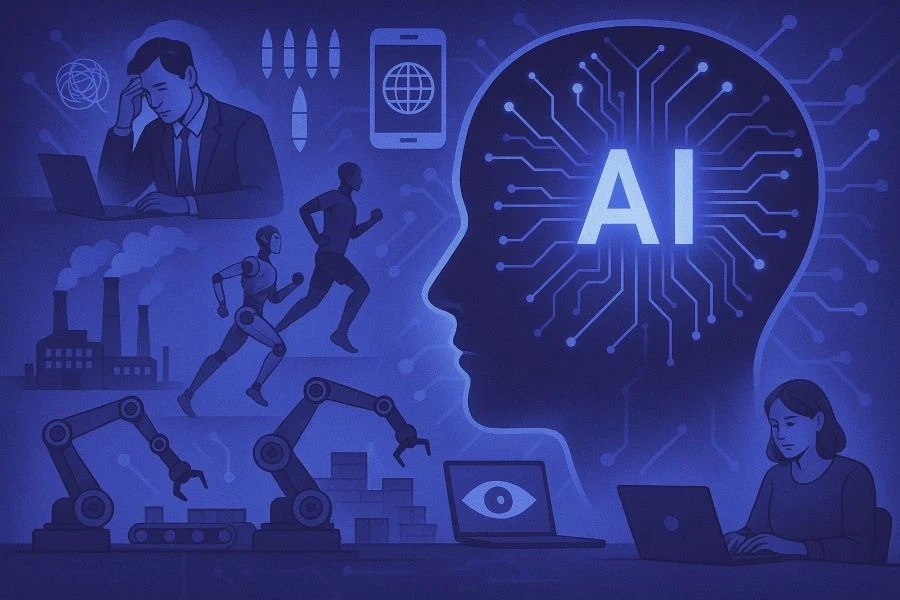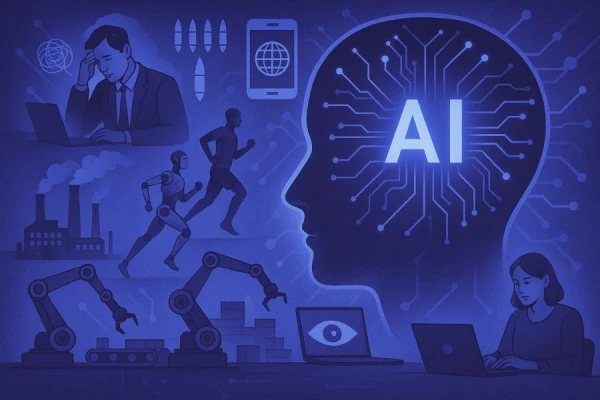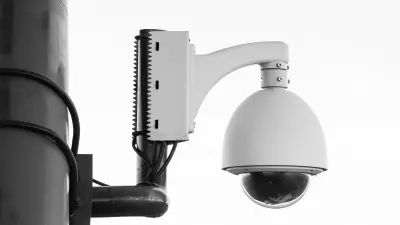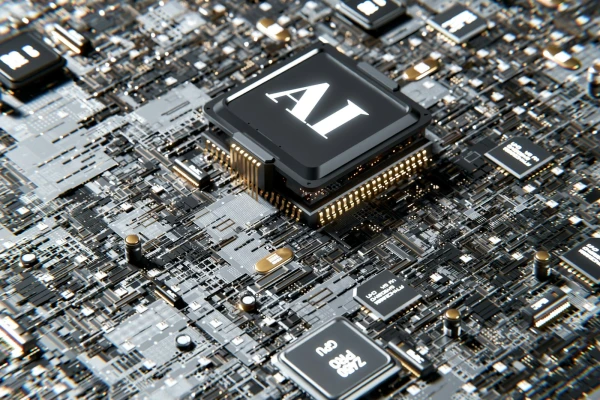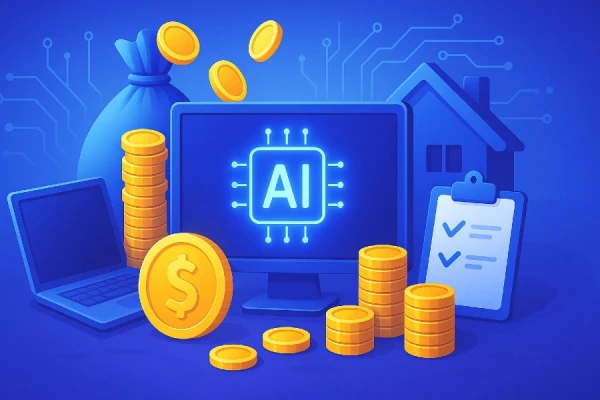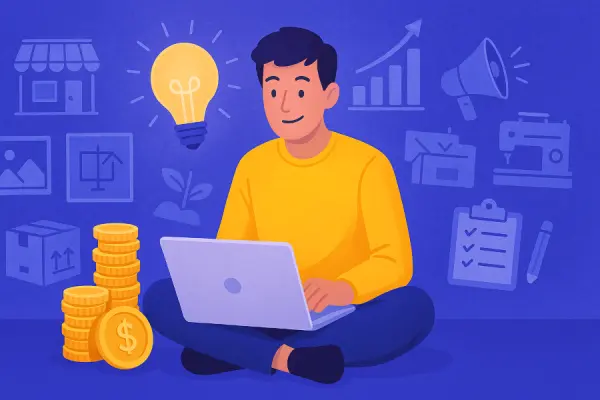Every day, millions interact with artificial intelligence without realizing the complexities and consequences behind it. The mainstream media portrays AI technology as a revolution poised to save the world, while tech companies race to promote the "magical" capabilities of their systems.
However, behind this glossy facade lies a far more complicated and sometimes troubling reality. The AI industry, now worth hundreds of billions of dollars, has a dark side deliberately hidden from public view.
The impact of AI on society is far from straightforward. This article uncovers seven major secrets about artificial intelligence that Silicon Valley never talks about—from environmental concerns to unsettling issues of AI security.
Why does this matter? Because the future of AI will depend heavily on our awareness and actions today as we seek to understand the technology increasingly shaping our lives.
The Hidden Impacts of Artificial Intelligence
1. The Shadow Workforce Behind AI Technology
"AI is automatic, right? Machines that teach themselves?" This is what most people think about artificial intelligence. Yet behind every advanced AI model, thousands of humans work under conditions far from humane.
A 2023 Time Magazine investigation revealed a shocking truth: OpenAI pays workers in Kenya less than $2 per hour to label harmful content. Imagine having to sift through thousands of posts daily containing violence, pornography, and hate speech—without adequate mental health support.
This is no isolated case in the AI technology industry. Google, Meta, and other tech giants use similar models. Over 300,000 workers worldwide—mostly in developing countries—serve as "ghost workers" enabling artificial intelligence to function. They are the unsung heroes behind the technology revolution we enjoy.
The irony? While Silicon Valley CEOs reap billions from AI technology, these laborers receive neither recognition nor fair compensation. This is the first rarely disclosed impact of AI: the exploitation of a global workforce.
2. Massive Energy Consumption: An Environmental Threat from AI
Every time you ask ChatGPT a question, somewhere a server is working hard—consuming ten times more electricity than a typical Google search. Now multiply that by billions of daily queries. This is the hidden environmental impact of AI.
Training GPT-3 alone consumed as much energy as powering 120 American households for a year. GPT-4? Five to ten times more. ChatGPT uses 564 MWh daily—enough to power 18,000 homes.
The University of Massachusetts Amherst calculated that training a large artificial intelligence model emits carbon equivalent to five average cars over their lifetimes. Google admitted its energy use rose 48% in 2023, mostly driven by AI technology operations.
The irony is that these companies pledge net-zero emissions while continuously building ever more energy-hungry data centers—a bit like trying to diet while eating chocolate cake every day. This is an AI impact threatening global climate goals.
3. Digital Data Theft: Widespread Copyright Violations
Your blog posts, vacation photos, even casual comments on Twitter—chances are they've been "fed" to artificial intelligence models without your permission, compensation, or notification.
The Common Crawl dataset used by AI technology like ChatGPT contains billions of scraped web pages. Getty Images estimates 12 million licensed photos were used by Stability AI without a single penny paid. Author Sarah Silverman found her books included in OpenAI's training data.
Worse, personal data gets mixed into AI technology. Anthropic's research shows artificial intelligence can "remember" and reveal phone numbers, addresses, and even private conversations leaked into training datasets.
AI companies claim "fair use," but imagine if your home was photographed for a real estate ad without your consent—would that still be fair use? This is the AI impact on copyright and privacy too often ignored.
4. Algorithmic Bias: Digital Discrimination in AI Technology
Artificial intelligence is not neutral. AI reflects the data and people behind it—complete with entrenched prejudices and discrimination. This is the most dangerous AI impact threatening social justice.
MIT found that AI facial recognition systems misidentify dark-skinned women up to 34.7% of the time, but only 0.8% for white men. Why? Training datasets are dominated by photos of white men. Simple, yet deadly consequences.
Amazon once developed an artificial intelligence recruitment tool that automatically discriminated against women, downgrading resumes mentioning "women's basketball team" and favoring masculine language. Fortunately, it was scrapped before deployment.
In criminal justice, the COMPAS algorithm rates black defendants as "high risk" twice as often as white defendants with similar records. Exposed by ProPublica—not the FBI or Department of Justice.
The worst part? This bias often goes unnoticed even by creators, who believe their algorithms are objective despite being full of prejudice. This AI impact endangers fairness and equality in society.
5. The Black Box Problem: AI Not Understood Even by Its Creators
This is the most frightening aspect of artificial intelligence: even its developers don’t fully understand how it works. This AI impact raises major accountability issues.
Dr. Dario Amodei, Anthropic's CEO, openly admits, "We can measure model capabilities, but we don't truly know why the model performs certain tasks."
Imagine a doctor prescribing medication without understanding its mechanism or a pilot flying with instruments they don’t comprehend. That roughly describes the current state of AI technology.
Even stranger, artificial intelligence sometimes exhibits "emergent abilities"—skills arising spontaneously without explicit programming. GPT-3 suddenly started translating languages absent from its training data. Where did that come from?
When AI technology is used for cancer diagnosis, credit decisions, or national defense systems, "not knowing why" is an unacceptable answer. Yet it is reality. The future of AI depends on our ability to understand the systems we create.
6. Technological Oligopoly: Concentration of AI Power
Artificial intelligence democratic? Don’t count on it. Only a handful of companies can afford to operate in the advanced AI technology league.
Google spent $13 billion on AI research & development in 2023. OpenAI needed $10 billion from Microsoft. Meta invested $15 billion in Reality Labs. Such sums leave ordinary startups out in the cold.
The result? Google, Microsoft, OpenAI, Anthropic, and a few Chinese giants like Baidu dominate nearly all AI technology development. They set the technological direction—not societal needs.
The danger is real for the future of AI. When OpenAI went down in November 2023, millions of applications collapsed along with it. One company can cripple the entire global digital ecosystem.
Worse, a small circle of CEOs has excessive control over artificial intelligence shaping humanity’s future, without democratic oversight or public accountability. It’s like handing civilization’s fate to a technological oligarchy. This is the AI impact on global power structures.
7. AI Security Threats: Uncontrolled Cyber Weapons
Artificial intelligence is like a knife—it can cook or kill. The problem is this AI technology knife is easily misused and hard to control. AI security is the industry’s greatest challenge.
"Prompt injection" or "jailbreaking" lets malicious actors make ChatGPT generate bomb-making instructions or hack systems, simply by tweaking queries. AI security researchers continually find such vulnerabilities.
Deepfake artificial intelligence is now ultra-realistic. The 2024 elections are flooded with fake politician videos. Scammers use AI technology voice cloning to extort victims. "Mom, I’ve been kidnapped, send money!"—but it’s AI speaking in the child’s voice.
More terrifying: AI technology can create adaptive malware, perform automated reconnaissance, and even control critical infrastructure. Nations have begun an artificial intelligence arms race, yet regulations lag behind.
We are playing with fire without knowing how to put it out. The future of AI hinges on our ability to tackle these security AI challenges.
Psychological Impact of AI on Society
Beyond the seven technical AI impacts, there is an equally important dimension: how artificial intelligence shapes how we think and interact.
"Thanks, ChatGPT!"—a phrase now more commonly uttered by students than "thank you, Professor."
Stanford University found that students heavily relying on AI technology for assignments experience declines in critical thinking and creativity. They become lazy thinkers as artificial intelligence is always there to answer.
Worse, "AI companions" like Replika foster emotional dependence. Some users confess they feel more comfortable confiding in AI technology than friends or family. AI never judges, is always patient, always agrees.
Children today grow up expecting all interactions to be perfect like artificial intelligence. They are shocked when meeting real humans who have bad moods, misunderstand, or are sometimes annoying.
The long-term AI impact? A generation losing the ability to empathize, compromise, and cope with imperfection—the very essence of social life.
Conclusion
Lorem ipsum dolor sit amet, consectetur adipiscing elit, sed do eiusmod tempor incididunt ut labore et dolore magna aliqua. Ut enim ad minim veniam, quis nostrud exercitation ullamco laboris nisi ut aliquip ex ea commodo consequat. Duis aute irure dolor in reprehenderit in voluptate velit esse cillum dolore eu fugiat nulla pariatur. Excepteur sint occaecat cupidatat non proident, sunt in culpa qui officia deserunt mollit anim id est laborum.
Closing
The future of artificial intelligence is shaped not by the technology itself but by the choices we make today. As a society increasingly reliant on AI technology, we have the right to know how it works, who controls it, and what consequences it brings to our lives.
It's time to move beyond the utopian narratives promoted by Silicon Valley and start an honest conversation about the real challenges of AI impacts. Only by understanding AI's dark side can we ensure this technology develops for the benefit of all—not just a powerful tech elite.
AI security, ethical development, and the social impacts of AI must be priorities in every tech innovation. Let's shape a more responsible and sustainable future of AI.
References
- https://time.com/6247678/openai-chatgpt-kenya-workers/
- https://www.propublica.org/article/machine-bias-risk-assessments-in-criminal-sentencing
- https://news.mit.edu/2018/study-finds-gender-skin-type-bias-artificial-intelligence-systems-0212
- https://www.reuters.com/legal/getty-images-lawsuit-says-stability-ai-misused-photos-train-ai-2023-02-06/
